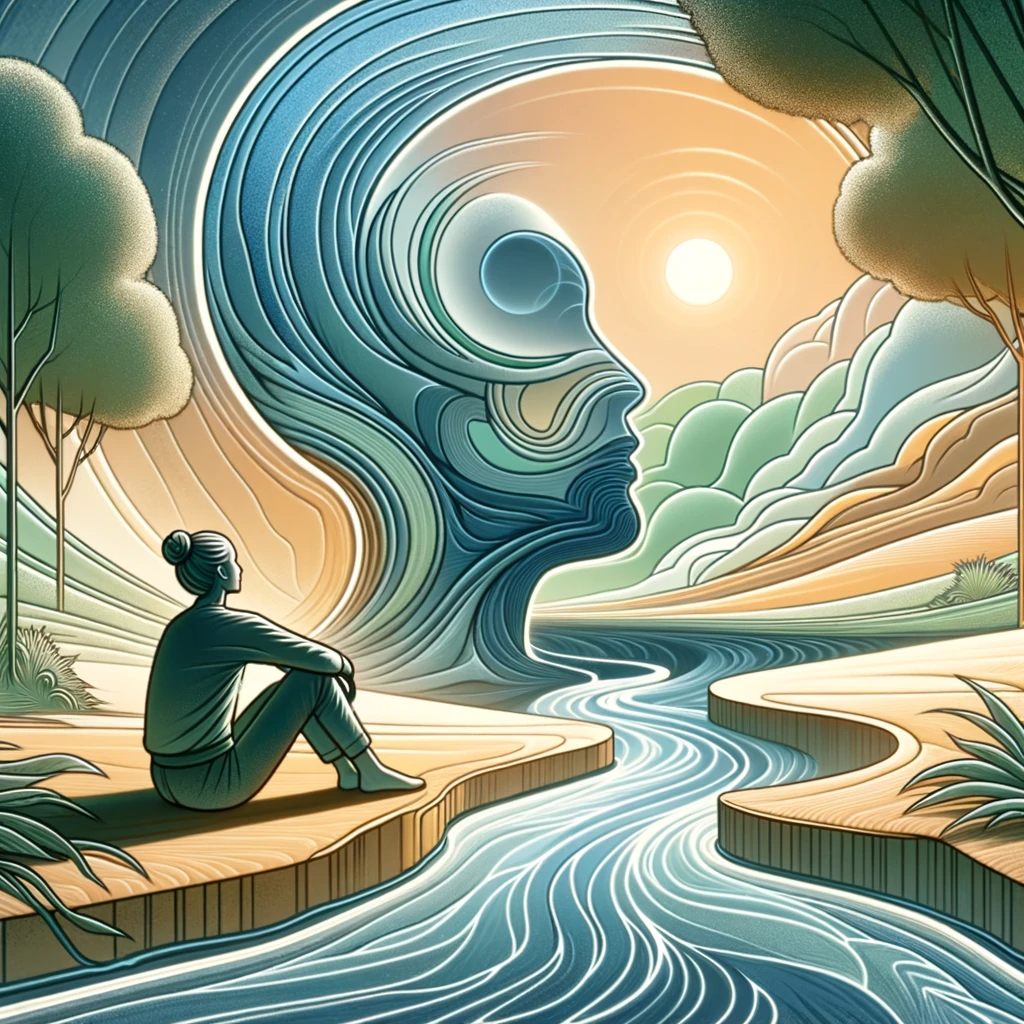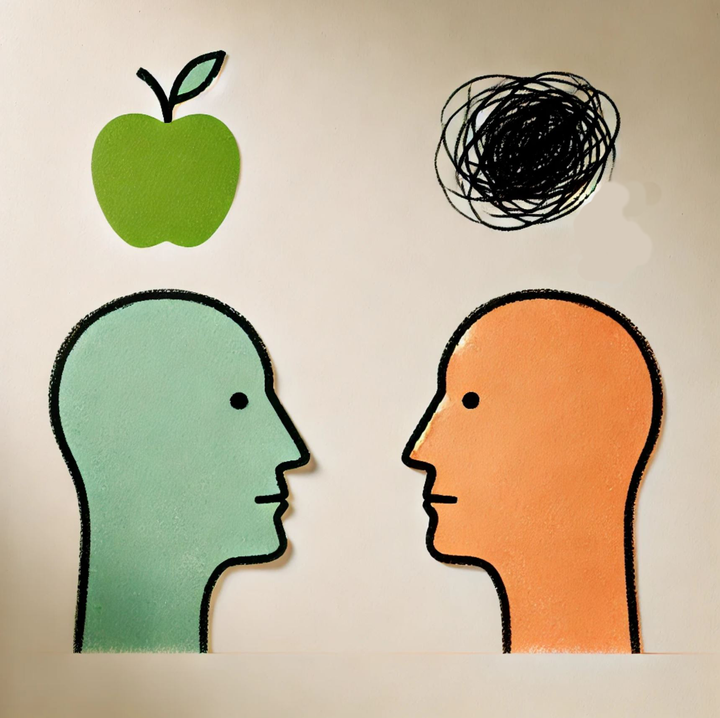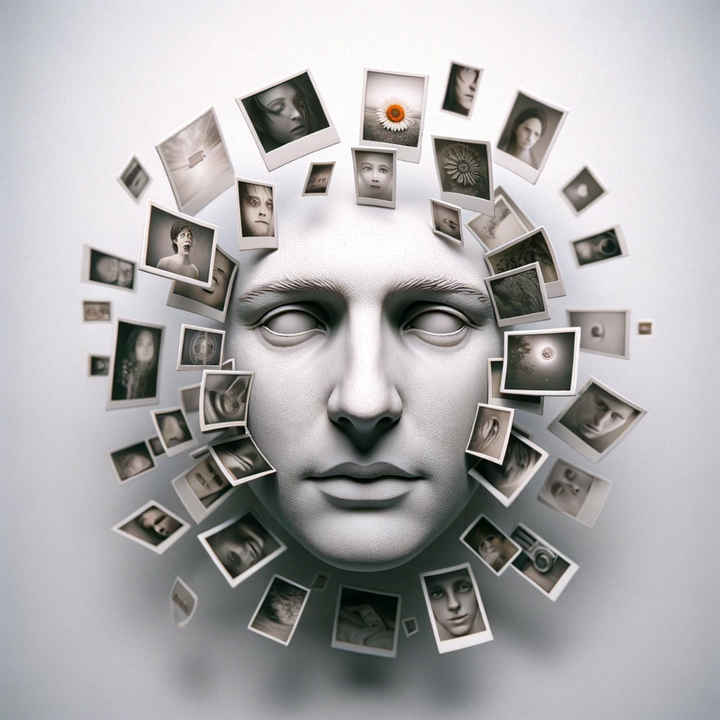Consciousness: Defined by Experience

The Experiment: The term "consciousness" is shrouded in multiple interpretations, defying easy definition. We propose that an experiential approach, rather than mere definition, unlocks a deeper understanding of this elusive concept. Through an introspective experiment, we invite you to encounter consciousness firsthand.
- Find a Quiet Place: Sit down comfortably in a peaceful environment.
- Focus on Breathing: Close your eyes and concentrate on your breathing—inhale slowly, hold, exhale slowly, hold. Repeat until your breathing is calm and relaxed.
- Visualization: You will imagine yourself sitting by a river whose stream runs from left to right. The water of this river is just flowing peacefully.
- Observe Your Thoughts: Watch your thoughts flow by like the river. They can be about anything. Just observe them come and go without getting involved or caught in their current.
- Feel Your Emotions: Pay attention to how you feel inside. Notice any discomfort, irritation, or tiredness. Observe these feelings as if you’re separate from them, just an observer, just like you and the river.
- Physical Sensations: feel the chair you’re sitting on, your back and bottom against it, and your feet on the floor. Notice your physical presence.
- Inner Self-Awareness: With your eyes still closed, try to sense the part of you that is aware of your thoughts and feelings. This observer is like you sitting on the riverbank, watching the thoughts flowing past. This observer is your inner self, your “I.” Notice the distance between this “I” and your thoughts and how your thoughts might try to pull your attention away.
- Transition to External Awareness: Now, with your eyes still closed, become aware of the world outside. The room you are sitting in. Listen to the sounds in and outside the room. Notice any smells. Touch the chair, feel your clothes.
- Open Your Eyes: Slowly and look around. Be aware of your surroundings using all your senses. You are still that observer watching the river flow, but now you are not observing the inner world but the outer world. Remember, this is about gently observing your experience, not judging or changing it. Just relax, enjoy the journey, and welcome whatever arises.
- Reflection: What does this experiment reveal? This experiment invites us to consider the nature of consciousness by reflecting on two distinct types of experience: the inner and the outer. You engaged in an inner experience with closed eyes, even while sensing the external world without visual input. Upon opening your eyes, you shifted to observing the external environment.
Takeaway: We have investigated the ‘experiencer’ — the observer within us. This primal sense of ‘I,’ which perceives both the outer world and our inner flow of thoughts, which knows both the outside world and our thoughts, is what we call ‘consciousness.’
Final Thoughts: Continue the experiment as your day unfolds, pause to wonder who is watching the show? Who feels the sun's warmth on their skin, who hears the music of laughter, who witnesses the parade of thoughts in their own minds? Your journey of discovery has begun: Who is the 'I' at the heart of my being?


